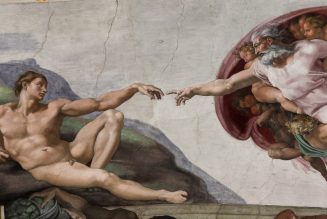It is remarkable how many words we use—often even important ones—without a clear notion of what they mean. Glory has been one of those words for me. Then one day I read a definition in Thomas Aquinas that fairly stopped me in my tracks.
“The word glory properly denotes that somebody’s good is known and approved by many.” Honestly, I kept reading this over and over, smiling. Every word other than ‘is,’ ‘and,’ and ‘by’ is significant here: somebody, good, known, approved, many. All right at hand in this definition are a whole worldview, the meaning of life, and a deep moral challenge… not to mention a new sense of the ‘glory’ of autumn!
Let us begin with the second and third terms. There can be glory when goodness is manifest; there is no glory if goodness remains unperceived. And it must be a rational perception, for only such perception really grasps the goodness of a thing. Here, already, we can begin to wonder at profound realities. For instance, what ‘good’ would it be if goodness were to remain unknown? How grateful we should be that there is goodness at all, and that it can be known! We might think of something as simple as the goodness of a genuine act of kindness, or the beauty of great music.
But the fourth word is central. The word ‘approved’ should be taken in a strong sense, as when a person says, “This object is so wonderfully good, that I say to it, ‘Yes!’” Such approval is in reality an act of love: I affirm, I approve, I rest in this good! Already the richness of ‘glory’ is becoming apparent, but we still have the last and the first words to consider.
Does it really need to be known by many? Aquinas points out that there is indeed a sense of glory in which a good is known and approved by just a few. But the notion of ‘by many’ conveys that the thing is so good that its goodness is clear or transparent, and thus perceived far and wide. Somehow such goodness demands to be approved by many, by the broader community. And for glory in the full sense, that is precisely what happens.
And then there is the final piece: glory, true glory, only really belongs to a person, to ‘somebody.’ Yes, we reasonably refer to a sunset or the autumn maples, sassafras trees, and crisp air as ‘glorious,’ because their goodness is manifest to many in their beauty. But here we come to a critical juncture—as indeed does any person coming face to face with great beauty. Just what is this goodness and beauty that offers itself to be seen, and even seems to demand recognition and approval? What is going on here?
Can the glory of the sun or the trees, or any bodily or non-personal good really be true glory? It is difficult to express what we might characterize as a moment of crisis, where what we see (and approve!) seems both to demand and show forth something behind it. A something that must be a someone.
I do not purport here to give a philosophical proof (though I think one might be worked up); I seek rather to express an experience had by many: an experience that is deeply rational, even while pressing the limits of rationality. Goodness always leads us back to a somebody, a somebody in some way responsible for that goodness.
And this discovery is a joyful one. It makes us want to call out, Glory!—as though we know that someone will hear us. There is glory due to created persons, for the good they have and the good they choose to do. Their goodness is worthy of being known and approved by many. And, it will be approved; at least some day.
But, wonderfully, we realize that their goodness too, and so their glory, is from another and ultimately for another, while still being theirs. St. Paul says that all is for the glory of God; all should be done for the glory of God. The glory of God: that His goodness be known, and approved, by many. This is the end and goal of everything. This is life: to give glory, to participate in glory, to enter into glory. And we can begin today. ~ ~ ~
A clip from OUR LATEST PODCAST on a Better Way to Bury Our Dead, and a short GARDEN UPDATE
Note: The quotation from Thomas Aquinas is from his treatment of the sin of ‘vainglory’ in the Summa theologiae.
Husband, father, and professor of Philosophy. LifeCraft springs from one conviction: there is an ancient wisdom about how to live the good life in our homes, with our families; and it is worth our time to hearken to it. Let’s rediscover it together. Learn more.








